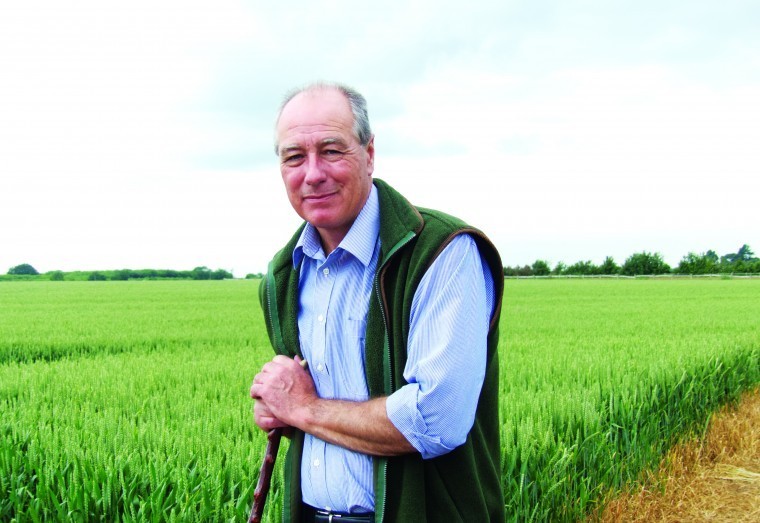It seems as if every month of this autumn has an extreme weather story and October has seen a dramatic swing back to wet weather with five inches of rain before the fifteenth of the month and nearly two inches in a 24 hour period.
Needless to say, such a quantity of rain has turned the arid soils of September into marsh, even on top of the North Downs. The change was so quick that we went from being unable to form seed beds from clods to unable to drill into mud in four days. There are plus points and the oilseed rape that had been struggling to survive, let alone grow, is suddenly lush and growing strongly with growth regulators pre winter a topic for discussion when few would have considered it likely on 1 October.
Not much blackgrass germinated in the dry September but now we have veritable lawns on the fields we have left to tackle severe infestations. Glyphosphate will certainly do a lot of good and as these fields are all destined for spring cropping with either beans or barley we should have another opportunity to reduce blackgrass seed numbers in the spring before drilling. Quite what we do on these fields as the next cultivation this autumn is difficult to decide with the very wet soil making deep cultivation difficult at present.
More difficult still has been trying to get pre emergence herbicides onto the fields we were drilling as the weather broke. The wind and waterlogged soil conditions has made that all but impossible. In our case these were second wheat on ground with a light grass weed burden and behind a plough but there is emerging blackgrass which will probably be resistant. All the fine theories and hard work still get overwhelmed by the weather. That said where autumn drilling has been held up a further flush of blackgrass has emerged and can be killed before drilling, which is good news.
For the first time in three years we have as an industry produced an exportable surplus of wheat from some of the best wheat crops I have seen in my farming career with only 1984 being comparable. Not only that but we have seen excellent bushell weights and hagbergs, albeit with variable protein. It is something the trade have been looking forward to, only for world supply and European quality to undermine prices to the extent that we are seeing markets dip below cost of production again.
It is likely that this will be the last large harvest in England as we will see blackgrass rob yield by competition and changing farming rotations to secure cultural control resulting in lower yield potential from spring cropping. Add in the regulatory effects of greening and the three crop rule and national output can only go one way, down.
Then we have the ongoing threat to plant protection products from the European regulators with the hazard based assessment criteria. Andersons have flagged up a possible eight per cent loss in cereal yields and 18% for oilseed rape in their report analysing the effect of losing a possible 87 active ingredients, with 40 of those very likely to be lost or restricted.
You can keep taking small slices out of production potential and eventually it will add up to a large effect and that will significantly lower the UK harvest making us net importers of cereals – not on the occasional extreme weather year leading to a temporary drop in output, but every year.
That will produce an effect on our balance of payments, and while that is not a measure that is taken seriously these days, the effect on food prices will be exaggerated when world food price spikes occur because we will not have sufficient indigenous production to buffer the effects. Much of the antipathy towards Europe is driven by the rules it passes which make everyday work and living just that much more complicated, particularly if you are running a business.
Of all the business sectors agriculture should have every reason to be soundly pro Europe but the decisions that keep coming do make it hard to remain convinced. I guess a lot of the rest of the population feel the same judging by the rise of UKIP or perhaps it is just our national politicians they have become disenchanted with. Next May will be interesting and certainly every prospective MP will be pleased to talk to ordinary people again, even farmers – at least for six weeks!




